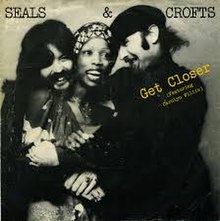
"Ain't Nothing Like the Real Thing" is a 1968 single released by American R&B/soul duo Marvin Gaye and Tammi Terrell, on the Tamla label in 1968. The B-side of the single is "Little Ole Boy, Little Ole Girl" from the duo's United LP. The first release off the duo's second album: You're All I Need, the song—written and produced by regular Gaye/Terrell collaborators Ashford & Simpson—became a hit within weeks of release eventually peaking at number eight on the US Billboard Hot 100 and number one on the Hot Soul Singles chart, the first of the duo's two number-one R&B hits. In the UK "Ain't Nothing Like the Real Thing" reached number 34.

Seals and Crofts were an American soft rock duo made up of James Eugene Seals and Darrell George "Dash" Crofts They are best known for their hits "Summer Breeze" (1972), "Diamond Girl" (1973), and "Get Closer" (1976), each of which peaked at No. 6 on the Billboard Hot 100 chart. Both Seals and Crofts were publicly outspoken advocates for the Baháʼí Faith. Though the duo disbanded in 1981, they reunited briefly in 1989–1992, and again in 2004, when they released their final album, Traces. Seals and his younger brother, the charting singer-songwriter "England" Dan Seals, later performed publicly together as Seals & Seals.

"You'll Never Find Another Love Like Mine" is a song written by Kenny Gamble and Leon Huff and performed by R&B singer Lou Rawls on his 1976 album All Things in Time. The song proved to be Rawls' breakthrough hit, reaching number 1 on both the R&B and Easy Listening charts as well as number 4 on the dance chart and number 2 on the US Billboard Hot 100. This was the first and only time that one of Rawls' records reached Billboard's pop Top Ten.

"Breaking Up Is Hard to Do" is a song recorded by Neil Sedaka, co-written by Sedaka and Howard Greenfield. Sedaka recorded this song twice, in 1962 and 1975, in two significantly different arrangements, and it is considered to be his signature song. Between 1970 and 1975, it was a top-40 hit three separate times for three separate artists: Lenny Welch, The Partridge Family and Sedaka's second version. The song was also adapted into multiple languages, most notably in Italian and French.
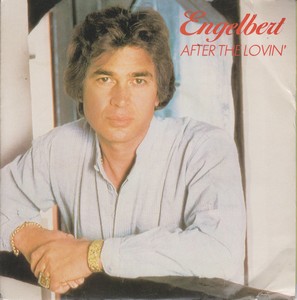
"After the Lovin'" is a single performed by Engelbert Humperdinck, produced by Joel Diamond and Charlie Calello, and composed by Ritchie Adams with lyrics by Alan Bernstein. The single was a U.S. top-ten hit in late 1976/early 1977, reaching number eight on the Billboard Hot 100 and number five on the Cash Box Top 100. It became a RIAA gold record. It is ranked as the 61st biggest U.S. hit of 1977. The song also reached number 40 on the country singles chart and spent two weeks atop the easy listening chart. It was Humperdinck's final Top 40 Billboard hit.
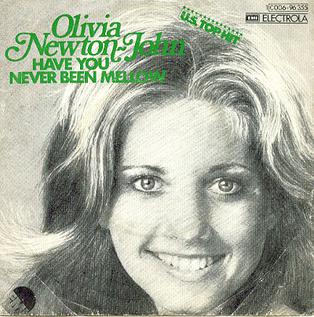
"Have You Never Been Mellow" is a song recorded by British-Australian singer Olivia Newton-John for her 1975 fifth studio album of the same name. Written and produced by John Farrar, the song was released as the lead single from the album in January 1975.

"Lonely Night (Angel Face)" is a song written by Neil Sedaka. The song was first recorded by Sedaka and appeared as a track on his 1975 studio album, The Hungry Years. The following year the song was made popular when covered by the pop music duo Captain & Tennille, who took their version to number 3 on the Billboard Hot 100.

"Time Passages" is a song by British singer-songwriter Al Stewart, released as a single in 1978. It was produced by Alan Parsons and is the title track of Stewart's 1978 album release. The single reached No. 7 on the Billboard Hot 100 chart in December 1978, and also spent ten weeks at No. 1 on the U.S. Billboard Easy Listening chart, the longest stay at number one on this chart in the 1970s. Billboard magazine also ranked "Time Passages" as the No. 1 Adult Contemporary single of 1979.
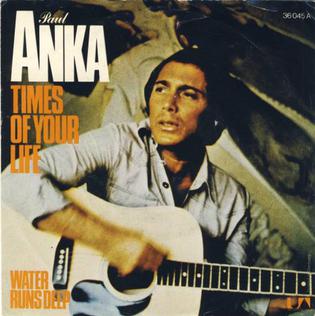
"Times of Your Life" is a popular song and advertising jingle made famous in the 1970s by Canadian singer Paul Anka, who recorded it in 1975 for an album of the same title. It was written by Roger Nichols (melody) and Bill Lane (lyrics).

"Yesterday's Songs" is a 1981 single by Neil Diamond from his album On the Way to the Sky. The song was a major adult contemporary radio hit, spending six weeks at #1 on the U.S. Billboard chart and four weeks atop the Canadian Adult Contemporary chart. On the Billboard Hot 100, it peaked at #11. On the Canadian pop charts, the song reached #15. "Yesterday's Songs" is ranked as the 77th biggest American hit of 1982.

"Junk Food Junkie" is a 1975 novelty song by Larry Groce. It spent 15 weeks on the U.S. charts, reaching #9 on the Billboard Hot 100. It was Groce's only song to chart. "Junk Food Junkie" spent two weeks at #31 in Canada, and it was also a minor hit on the Adult Contemporary chart. The song is currently released on K-tel International.

"If You Know What I Mean" is a song written and recorded by Neil Diamond. It is a track from Diamond's 1976 album, Beautiful Noise, and was his third number 1 on the Easy Listening chart, where it spent two weeks. "If You Know What I Mean" went to number 1 for two nonconsecutive weeks and peaked at number 11 on the Billboard Hot 100. In Canada, the song reached number 19 on the pop singles chart and hit number 1 on the Adult Contemporary chart.
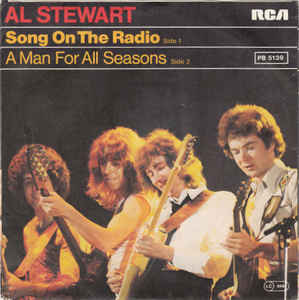
"Song on the Radio" is a composition by Al Stewart introduced on his 1978 album release Time Passages.

"Take It Easy on Me" is a song by Australian soft rock band Little River Band, released in December 1981 as the second single from the album Time Exposure. The song reached No. 10 on the U.S. Billboard Hot 100, becoming their sixth and last top 10 hit on the chart and also reached No. 14 on the Adult Contemporary chart. The song was written by band member Graham Goble and produced by British record producer George Martin.
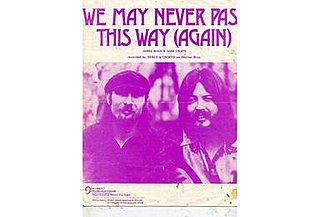
"We May Never Pass This Way (Again)" is a song by American soft rock duo Seals and Crofts, released as a single in 1973. It was the second single from their fifth studio album, Diamond Girl. The song reached No. 21 on the US Billboard Hot 100 and spent two weeks at number 18 on the Cash Box Top 100.

"You're the Love" is a 1978 song recorded by Seals and Crofts. The song reached number 18 on the U.S. Billboard Hot 100, and in Canada it spent two weeks at number eight. The song was the act's final Top 40 hit in both nations.
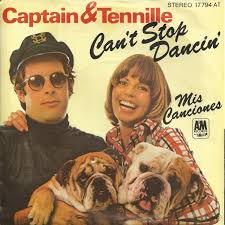
"Can't Stop Dancin" is a song written by John Pritchard Jr. and Ray Stevens, which became a Top 40 hit for Captain and Tennille in early 1977. It was the first single released from their third studio album, Come In from the Rain.

"Love's Grown Deep" is a song by Kenny Nolan, taken from his eponymous debut album. The recording was issued as his follow-up to his major hit song, "I Like Dreamin'" and is similar in style.

"Sweet Dreams" is a song by English/Australian soft rock duo Air Supply from their sixth album, The One That You Love. The song reached No. 5 on the Billboard Hot 100 and No. 4 on the Adult Contemporary chart in early 1982. The song also reached No. 8 on Cash Box. In Canada, it peaked at No. 14 on the RPM Top 100 and No. 15 on the Adult Contemporary chart.
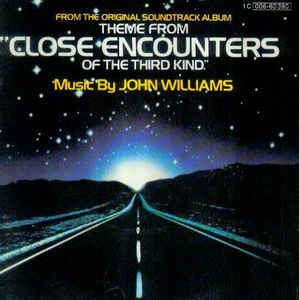
"Theme from Close Encounters of the Third Kind" is a 1978 instrumental hit single by composer John Williams. It is the main theme of the soundtrack of the movie of the same name. The song became a hit in the United States (#13) and Canada (#12) during the winter of that year.
